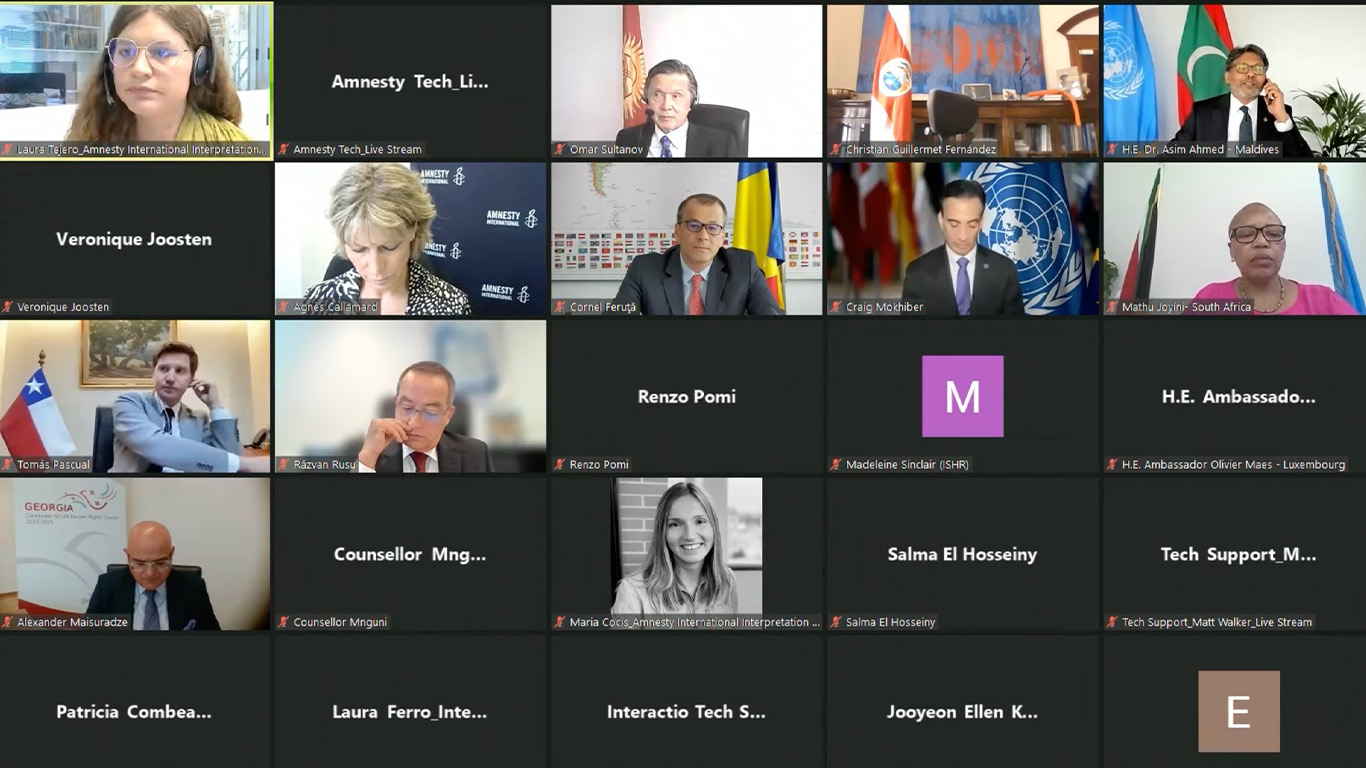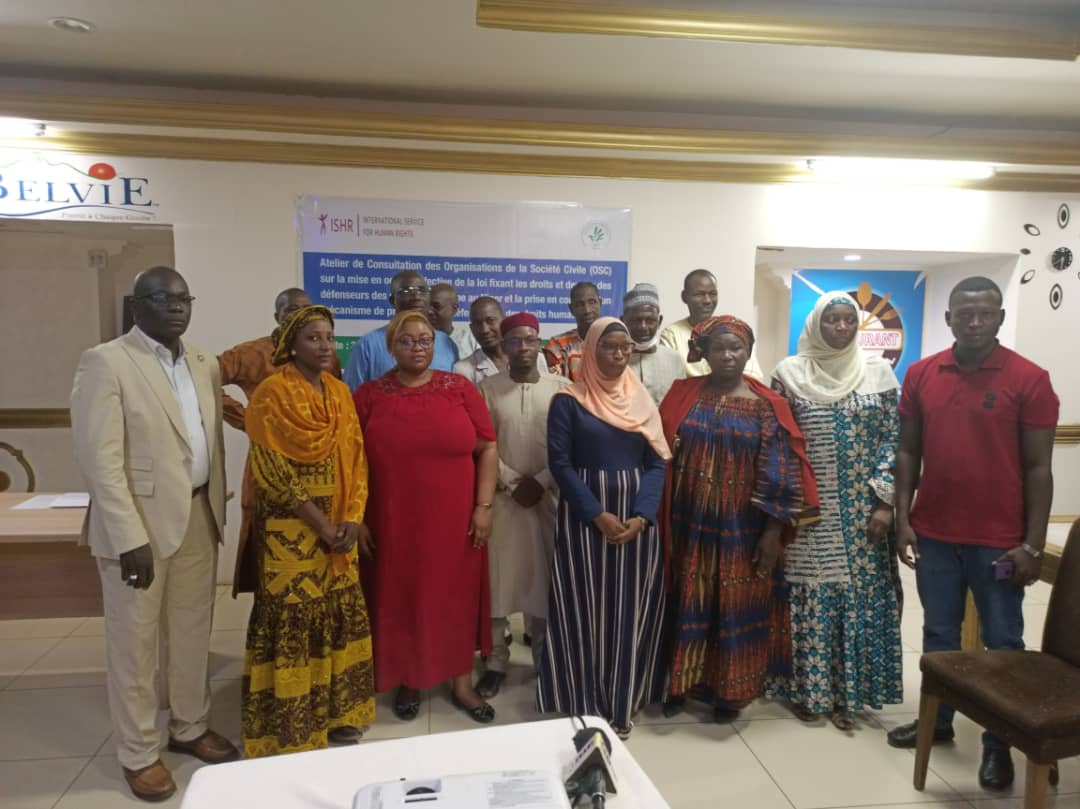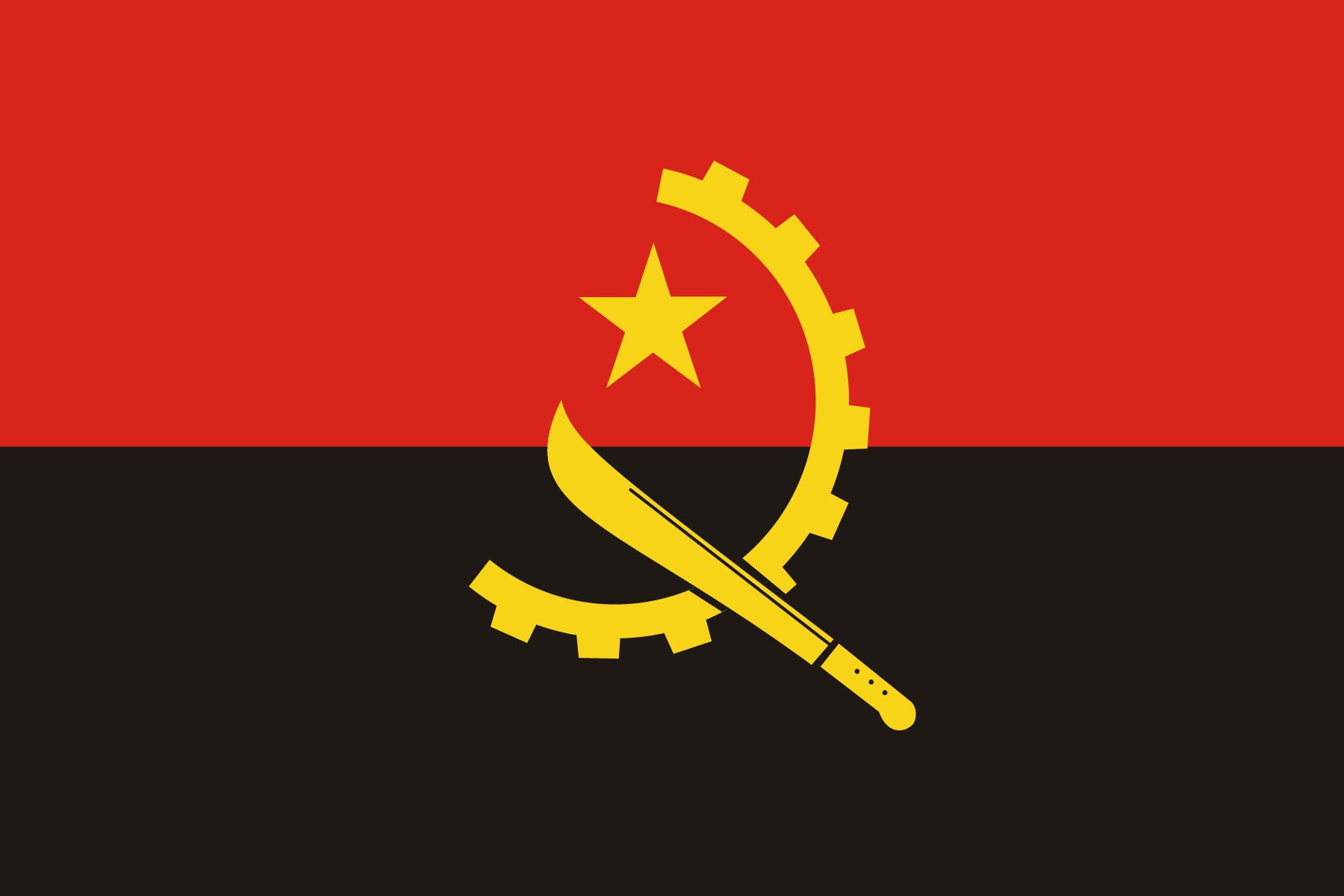On 7 September, representatives of States seeking election to the UN Human Rights Council joined an online event organised by ISHR and Amnesty International, during which they discussed their plans should they be elected, responding to specific questions on their human rights records at home and at the international level.
There are 18 candidates running for 14 seats distributed between five regional slates. Two regional slates are competitive—Asia Pacific and Latin America and Caribbean — a welcome change from the all too frequent occurrence of closed slates.
Of the 18 declared candidates, 11 were represented at the online event: Afghanistan, Belgium, Chile, Costa Rica, Germany, Georgia, Republic of Korea, Kyrgyzstan, Maldives, Romania, and South Africa. Seven states declined the invitation or did not reply to the invitation: Algeria, Bahrain, Bangladesh, Morocco, Sudan, Vietnam and Venezuela.
Candidates who joined spoke to a virtual audience of some 150 attendants, including members of civil society organisations, many of whom submitted questions to the candidates. Craig Mokhiber, Director at the New York Office of the High Commissioner for Human Rights (OHCHR) moderated the event.
General pledges to reinforce human rights standards and fulfil the mandate of the Council
The Geneva-based representative for Afghanistan called on States to elect his delegation to the Council, insisting this would be a signal that the human rights situation in the country should be kept at the top of the international agenda. He denounced the abuses of ‘de facto power holders in Kabul’, which are among ‘the worst rights offenders in the world’.
Belgium emphasised their willingness to contribute to the Council’s mandate on areas such as accountability and the rule of law, fighting inequality and discrimination, particularly women and girls, and promoting all civil, economic, cultural and social rights.
Chile pledged to work to reinforce the legitimacy of the human rights system, framing their candidacy as driven by the will to address all topics, even difficult ones, and to be held accountable by civil society.
Costa Rica listed preserving and upholding a strict human rights regime as its principal objective as a candidate, saying this is the only path towards achieving peaceful, inclusive societies and to realise the objectives of UN’s 2030 Agenda for Sustainable Development.
Georgia pledged to support the comprehensive implementation of the mandate of the Human Rights Council, particularly regarding vulnerable groups, including women, children, or internally displaced persons.
Germany pledged to promote the crucial role of civil society within the Council, committing to support their participation in the body. German representatives also promised to continue fighting for the rights of women and girls worldwide and to continue to highlight the nexus between human rights and climate change.
Kyrgyzstan committed to actively participating in the work of the Council to protect and promote the human rights of all. Domestically, Kyrgyz representatives pledged to increasingly bring gender perspectives in public policy, focusing on education and women’s leadership, to strengthen the protection of children and to reinforce their national human rights institution.
The Maldives promised to draw on their own democratic journey, which they said can be of service to Council members, arguing their membership would provide an opportunity to engage with States and provide their experience in a global setting.
The Republic of Korea said it aimed to promote the universal value of human rights, both nationally and internationally, ensuring full compliance with existing human rights instruments while also promoting new ones.
Romania saw its candidacy as an opportunity to promote the core rules of a values-based international system, both internationally and domestically, of fostering democracy, the rule of law and the rights of women, and of fighting discrimination and supporting freedom of expression.
South Africa stressed they would promote and respect the integrity of OHCHR as well as their regional office in Pretoria, and that they would consistently welcome the Special Procedures and other mechanisms of the Human Rights Council that wished to visit South Africa.
Questions from civil society
All attending candidates were asked about the recent publication of OHCHR’s long-awaited report on Xinjiang. Costa Rica argued that the Council need not be ‘a club of friends’ nor a place to ‘name and shame’, and that, though their country seeks to reinforce human rights in the world, they also have to maintain a dialogue on human rights. This sentiment was echoed by Chile, whose representative said they will work with everyone in the human rights system, where they can share good practices and past experiences. Regrettably, no other State came forward with a response to this question.
When asked if they would continue to abstain when facing country-specific resolutions at the Council, except on Item 7, South Africa said it will continue to consider every issue on its unique merits when it comes to specific resolutions.
Georgia were asked if their government intended to establish a new agency to investigate torture to replace the State’s Inspector Services, which were was dissolved in March. Their representative said a decision had been taken to set up a ‘new, independent mechanism’ and their government would take ‘all necessary measures’ to be ‘in full compliance’ of its obligations with this and other mechanisms.
Responding to a question about action to address reprisals against Cameroonian NGO Organic Farming for Gorillas Cameroon (OFFGO), Belgium pledged to continue to raise individual cases where defenders and organisations are being retaliated against by States seeking to punish them for interacting with the United Nations.
In response to a question on their position on the death penalty, the representative of the Maldives say they will maintain the informal moratorium that has ruled their policy for the last fifity years.
On the role of civil society at the Council and other international human rights processes, the Republic of Korea said they intend to work with such groups, which have expertise in what is happening at the local level and know where there are solutions to some of the gaps in the human rights system.
Chile responded to a question on the renewal of a Fact-Finding Mission (FFM) for Venezuela that was established by the Council in 2019 by confirming they will be working towards a resolution that will seek to extend the mission’s mandate at the next session.
On the issue of business and human rights, South Africa insisted that its government had gone to great lengths in establishing a host of ‘good practices’ for private sector companies, but fell short of clarifying any commitment or pledge related to their candidacy.
Questions for States who did not attend the event
The seven Council candidates that did not join the virtual pledging event were also asked questions by civil society groups, and these were read aloud for the record. These included the following points:
- To Algeria: if elected, what will you do about detentions which are not subject to judicial review, breaking with the Covenant of civil and political rights?
- To Morocco: what measures have been taken to improve the 1958 law for associations to enjoy freedom of speech and to align this legislation with current international human rights standards?
- To Sudan: how do de facto authorities intend to reconcile the fact that Sudan is suspended from the African Union, but still running for the Human Rights Council?
- To Bangladesh: what steps will you take to acknowledge and promote the rights of the LGBTIQ+ community in the country?
- To Vietnam: you pledged to engage with the work of the Council on climate change, yet your government has arrested four prominent environmental defenders. Will you commit to not arresting climate activists if elected?
- To Bahrain: in view of your desire to join the Council, will you make a demonstration of your commitment by releasing all prisoners of conscience, including noted human rights defenders that are detained and have been tortured?
- To Venezuela: NGOs have denounced reprisals as a result of their cooperation with UN bodies. How would you guarantee a safe environment for them? Will you cooperate with mechanisms like the Council’s Fact-Finding Mission?
Ahead of this year’s elections, which are scheduled in October, ISHR has published scorecards for each State seeking election and regional cards comparing candidates States of every region. We urge the General Assembly to elect only those States that uphold the highest standards in the promotion and protection of human rights.
Download as PDF




